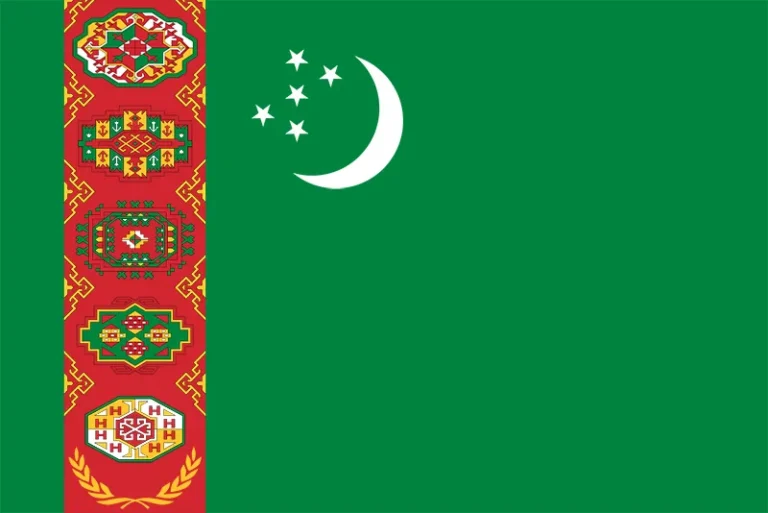Turkmenistan concludes a major export deal with Iraq

Turkmenistan is about to secure a major, and unexpected, new buyer for its natural gas: Iraq.
On October 8, Turkmenistan's Foreign Ministry reported a four-day visit to Baghdad by the head of Turkmenistan's state gas company for meetings revolving around this prospect.
The plan calls for Iraq to import up to 10 billion cubic meters of gas from Turkmenistan under a five-year, three-way swap deal that also involves Iran, which sits between those two countries. Financial terms of the proposed deal were not disclosed.
The volume of gas in question is considerable and equals approximately a quarter of the quantity purchased by what is currently Turkmenistan's most important customer.
Turkmen authorities are typically reluctant to provide reliable or specific figures on how much gas is exported to China each year, but the figure is likely to be between 35 and 40 billion cubic meters. This gap has important implications for negotiations with other partners.
The fact that Turkmen government websites uncritically report Chinese data on gas exports in 2022, which reached a value of $10.25 billion, suggests a price of around $250-290 per 1,000 cubic meters. Considering a deal with Iraq at the highest level of this spectrum, Turkmenistan could generate nearly $3 billion in additional gas revenue each year.
The apparent speed with which the Iraq deal appears to have been finalized casts an unflattering light on the so-far corpse-like progress made to get the trans-Afghan TAPI pipeline project off the ground.
More hesitations will occur when a delegation of officials from the Pakistani Ministry of Energy travels to Ashgabat to participate in an oil and gas conference to be held from 25 to 27 October. Pakistan's interim Prime Minister Anwaar-ul-Haq Kakar outlined what is at stake in advancing the dialogue on energy cooperation.
“The gas potential in Turkmenistan is huge and I hope that by the end of the interim government's term we will reach a practical conclusion in this regard,” Kakar said in a radio interview aired on October 8.
This sentence contains two imponderable elements. There is no clear idea on the expiration date of Pakistan's interim government, which could seek to drag out the holding of new elections until February 2024 or beyond. Furthermore, the term “practical conclusion” is vague to the point of being meaningless.
The latest notable development on the TAPI agenda was the signing of a joint implementation plan between Pakistan and Turkmenistan in June. Pakistan's then prime minister, Shahbaz Sharif, who oversaw the signing, insisted that he wanted to see the 1,800-kilometer pipeline, which is expected to have a capacity to transport 33 billion cubic meters of gas per year, built." at maximum speed." Pakistani media quoted Sharif as saying that this accelerated timetable would be achieved by “optimizing all available resources by all stakeholders.”
A national accounting problem
On October 4, talks between Turkmenistan Deputy Foreign Minister Berdyniyaz Myatiev and the World Bank's regional director for Central Asia, Tatiana Proskuryakova, took place in Ashgabat. The Foreign Ministry's laconic statement on this exchange only emphasized that the conversation touched on “topical issues on the cooperation agenda” and “priority areas for further cooperation.”
It may be overly hopeful to imagine that the World Bank will feel emboldened to pressure Turkmenistan to produce more reliable economic data – an indispensable tool for effective planning.
Last month, World Bank colleagues at the International Monetary Fund timidly broke a taboo by producing a report that fundamentally cast doubt on the reliability of Turkmenistan's economic data.
A reminder of the metronomically predictable absurdity of Turkmenistan's statistics came at the October 5 cabinet meeting, where Khojamurad Geldimuradov, the deputy prime minister with portfolio for economic affairs, said that gross domestic product grew by 6.3 percent. % in the first nine months of 2023.
How much did the economy grow in the same period in 2022? Just a whisker less: 6.2%. Officials offered the same figure in 2021. Only in 2020, the year of COVID, when Turkmenistan sealed its borders and the entire world faced colossal headwinds, did statisticians come up with the indicator slightly more modest than the 5.8% GDP growth. In short, the country would have found the solution of constant and perpetual growth, almost like the EU. The alternative methodology for calculating GDP put forward by IMF experts sees Turkmenistan's economy contracting not only in 2020, but even in 2019.
With the busy foreign travel season of Turkmenistan's co-leaders – President Serdar Berdymukhamedov and his father, predecessor and so-called national leader Gurbanguly Berdymukhamedov – appearing to have entered into some kind of truce, domestic developments are returning to one family pattern.
For Berdymukhamedov senior, this means turning attention again to his pet project: the new city of Arkadag. The first phase of construction was formally declared completed in June. (The name Arkadag was chosen, among other things, because it is the honorific – which in Turkmen means patron – by which Berdymukhamedov is known). Official reports of the work carried out speak of the construction of 336 "modern buildings", including houses, government offices, schools, theatres, clinics and sports halls.
all these constructions occur slowly and without deep management control. But no one bothers to point this out to the government…

Thanks to our Telegram channel you can stay updated on the publication of new Economic Scenarios articles.
The article Turkmenistan concludes major export deal with Iraq comes from Economic Scenarios .
This is a machine translation of a post published on Scenari Economici at the URL https://scenarieconomici.it/il-turkmenistan-conclude-un-importante-accordo-di-esportazione-con-liraq/ on Mon, 16 Oct 2023 07:00:28 +0000.
